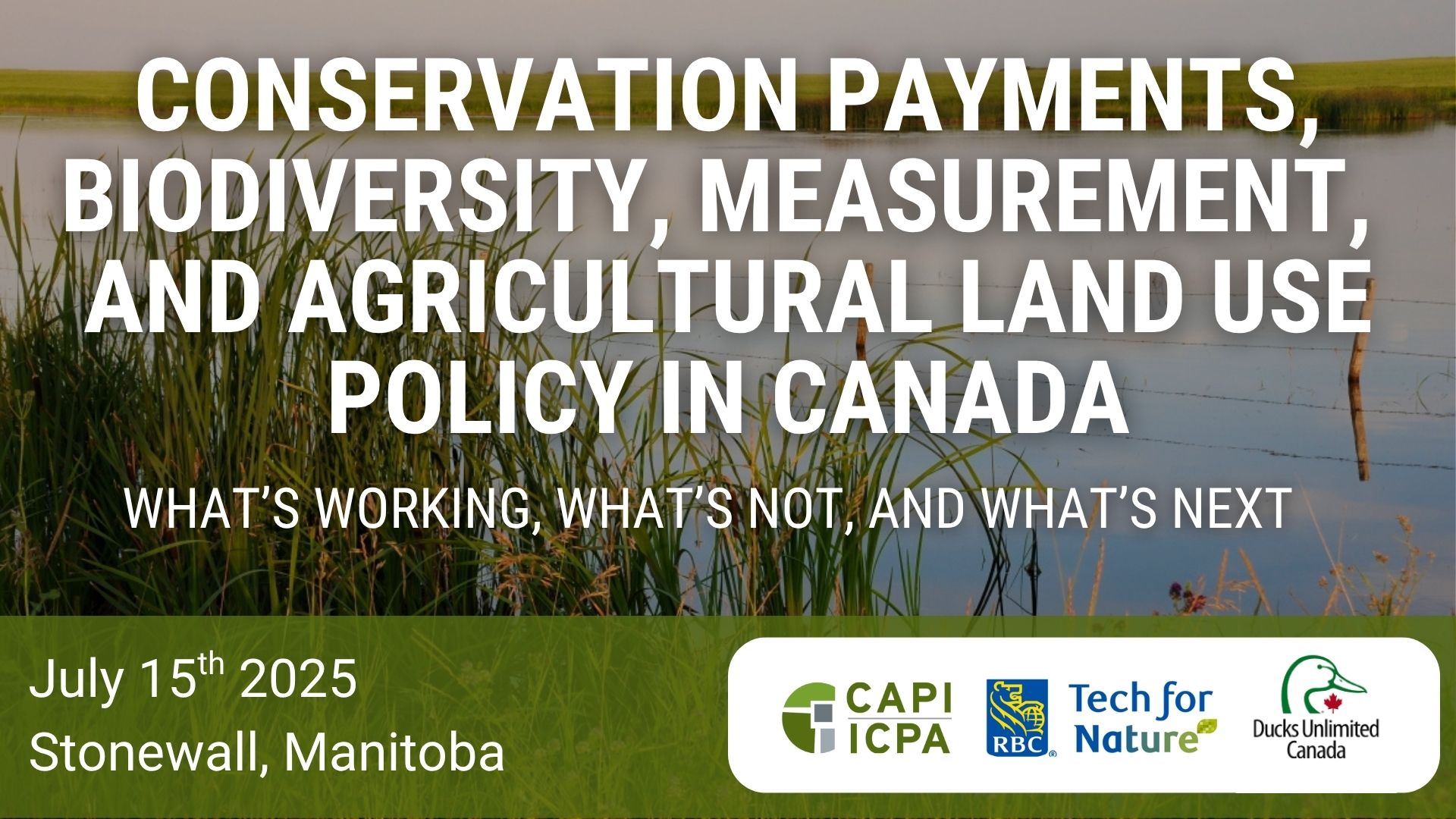
Canadian farmers can play a critical role in environmental stewardship while managing the land on which they farm. There are a variety of approaches to reward producers for practices that enhance land conservation and improve environmental outcomes.
This one-and-a-half-day workshop will feature new insights from a national survey of producers on their experiences and expectations with conservation programs and a panel discussion on how better biodiversity measurement and data can improve policy outcomes. Participants will spend time after each session collaborating on what’s working, what’s not, and what’s next to build a picture for what the landscape needs to look like to drive more effective conservation programs.
We invite you to join CAPI and Ducks Unlimited Canada for collaborative dialogue, panel discussions, and more with the goal of having participants leave having generated concrete, action-oriented policy recommendations to improve the design, delivery, and impact of conservation incentives across the country.
This workshop is part of CAPI’s Policies for Land Use, Agriculture & Nature (PLAN) program focused on advancing solutions that enable us to feed the world sustainability, protect farmland, preserve nature and biodiversity, and promote food security. This workshop is supported in part by the RBC Foundation through RBC Tech for Nature.
|
Agenda – July 15th 2025 |
|
|
7:30am |
Transport to Oak Hammond Marsh |
|
8:00am-8:45am |
Registration, Breakfast, Networking |
|
8:45am-9:00am |
Welcome
|
|
9:00am-9:30am |
Setting the Stage: Conservation Payments Survey Results
CAPI released a survey earlier this year with the goal of better understanding producer perspectives on conservation programs. This session will highlight the results, diving into the challenges and benefits of conservation payments and how they impact farming operations. This presentation will set the stage for discussions on policy options for shaping better programs that support the economic viability of farms and environmental sustainability. |
|
9:30am-9:45am |
Break, Coffee, Networking |
|
9:45am-10:45am |
Breakout Discussions Participants will spend the session engaged in dialogue answering three questions:
|
|
10:45am-12:00pm |
Marsh Tour An experienced guide will accompany the group, exploring the marsh and learning about the history and management. This will provide opportunity to see conservation in action and provide participants with additional ecological and policy context. |
|
12:00pm-1:00pm |
Lunch, Networking |
|
1:00pm-2:00pm |
Measurement and Data
If we want better programs and policy, we need better data. This session will explore how improved biodiversity measurement and data collection can improve policy outcomes. Panelists will discuss what data is needed, whether it’s already being collected, how it can be better used, and challenges, such as confidentiality and data accessibility. The focus will be on what the landscape will need to look like to drive more effective conservation programs. |
|
2:00pm-3:00pm |
Breakout Discussions Participants will spend the session engaged in dialogue answering three questions based on the preceding panel discussion.
|
|
3:00pm-3:15pm |
Break, Coffee, Networking |
|
3:15pm-4:15pm |
Next Steps: From Ideas to Action Participants will take the learnings from the day and focus on specific topics gleaned from the presentations and dialogue to develop actionable policy recommendations. What are the next steps? How do we keep the conversation going? |
|
4:15pm-4:20pm |
Closing Remarks
|
|
4:20-5:00pm |
Reception Close the day with an informal opportunity to continue conversations sparked during the workshop and reflect on the day’s discussions. Light refreshments will be served. |
